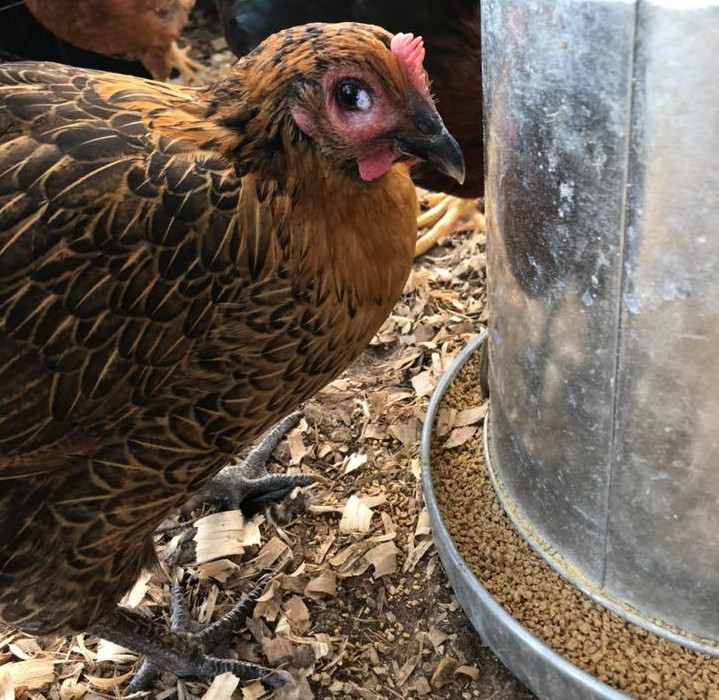
Protecting Your Flock – Decoding the Mystery of Mycoplasma in Chickens
Understanding Mycoplasma Infections
As a dedicated chicken owner or aspiring poultry farmer, ensuring the health and vitality of your flock is not just a duty but a passion. Amidst the myriad challenges that can impact your feathered friends, mycoplasma infections stand out as formidable foes. Let's delve into the intricate world of mycoplasma, particularly focusing on mycoplasma gallisepticum (MG) and mycoplasma synoviae (MS), to equip you with the knowledge and strategies needed to safeguard your flock's well-being.
Unveiling the Intricacies of Mycoplasma
Mycoplasma, unlike conventional bacteria, lacks a cell wall, rendering it elusive to traditional antibiotics and immune responses. This unique characteristic makes mycoplasma infections particularly challenging to manage and control. MG targets the respiratory system, causing symptoms like nasal discharge, sneezing, coughing, and swollen eyelids. On the other hand, MS can affect multiple systems, including joints, the respiratory tract, and reproductive organs, leading to lameness, decreased egg production, and other health complications.
Recognizing the Signs
Early detection of mycoplasma infections is paramount for effective treatment and containment. Watch out for symptoms such as respiratory distress, nasal discharge, swollen sinuses, lameness, decreased egg production, and infertility. However, it's crucial to confirm the infection through veterinary testing, which may include blood tests or PCR analysis.
Treatment Strategies and Preventive Measures
Navigating Treatment Challenges
Managing mycoplasma infections requires a multifaceted approach. Antibiotics like Tylan, Baytril, and Gallmycin are commonly used to alleviate clinical symptoms and reduce severity. However, it's essential to consult with a veterinarian for personalized treatment plans tailored to your flock's specific needs. Vaccination also plays a pivotal role in preventing mycoplasma infections and should be incorporated into your flock management practices.

Fortifying Your Defenses: Prevention is Key
Prevention remains the cornerstone of mycoplasma control. Implement robust biosecurity measures, including quarantine protocols for new birds, regular cleaning and disinfection of coop environments, and strict hygiene practices when handling chickens and equipment. Consider using medicated starter feed for unvaccinated chicks and natural supplements known for boosting immunity.
Embracing Innovation
Innovative technologies, such as advanced diagnostic tools and probiotic supplements, can further enhance your flock's resilience against mycoplasma infections. Stay abreast of the latest developments in poultry health and leverage modern solutions to fortify your flock's defenses.
Partnering for Flock Health
Collaboration with experienced veterinarians, poultry health experts, and reputable suppliers is instrumental in your journey to protect your flock. Tap into their expertise, seek personalized guidance, and foster a proactive approach to managing mycoplasma infections effectively.
Empowering Your Flock's Future
By unraveling the mysteries of mycoplasma and adopting proactive strategies, you empower your flock to thrive and flourish. Embrace a holistic approach to flock health, combining knowledge, innovation, and collaboration to ensure a vibrant and resilient poultry community.

Sources
- Mycoplasma Gallisepticum Infection in Poultry - Merck Veterinary Manual
- Mycoplasma Synoviae in Poultry - University of Georgia Extension
- Understanding Mycoplasma in Backyard Chicken Flocks - Texas A&M Veterinary Medical Diagnostic Laboratory
Conclusion
As you embark on this journey of protecting and nurturing your flock, remember that knowledge is your most potent tool. Arm yourself with insights, embrace proactive strategies, and forge strong partnerships within the poultry community. Together, we can decode the mystery of mycoplasma and ensure a thriving future for your cherished feathered companions.